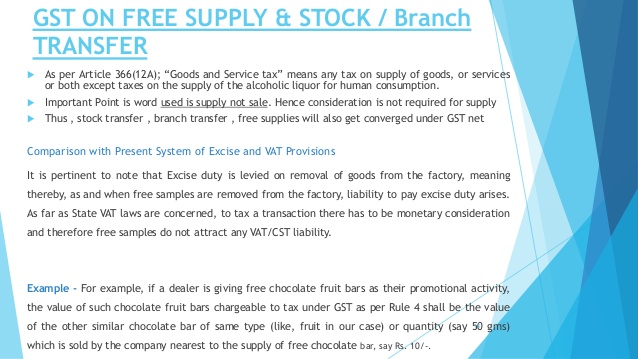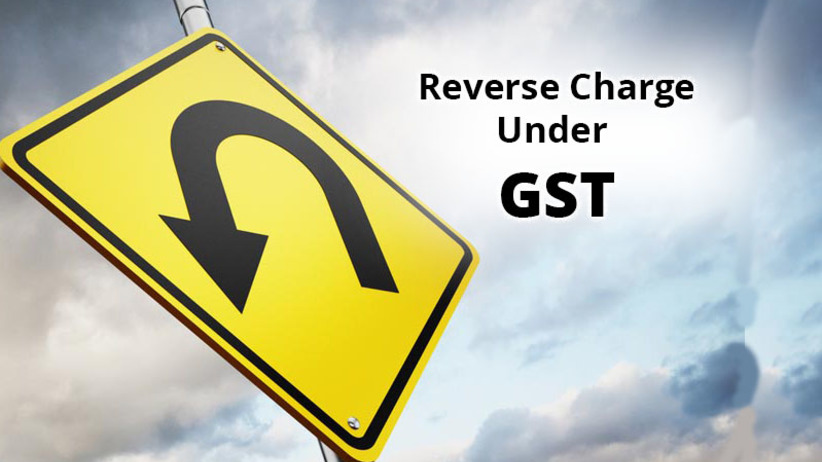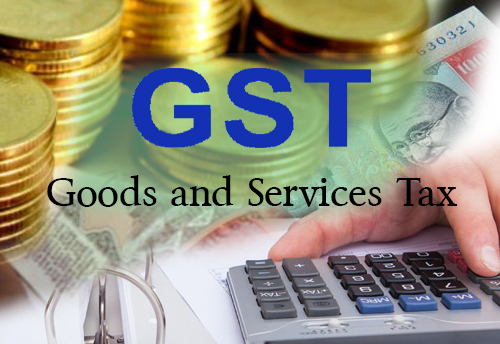Will GST Bring along Inflation?- Yes, appears so


As India inches closer towards following the much-awaited unified tax system, Goods and Services Tax (GST), supposed to come into effect from April 2017, speculations are rife about the overall impact it would have on the industry, government, and the common man.
The government is very optimistic about the positive impact it would have on the collection of taxes, putting a check on tax evaders, curbing corruption by controlling bureaucracy, contributing to a higher rate of GDP, and more.
However, The Reserve Bank of India while releasing the recent monetary policy commented that GST while reducing the supply chain hurdles improves productivity and cuts down logistics and transportation costs may produce short -term inflationary trends.
Goods and Services Tax (GST) aims to rationalize the current confusing maze of indirect tax system, which comprises more than 17 types of taxes levied at different stages in supply chain. GST aims to have one common unified tax system across the country and a wider tax base by taxing most of the goods, and services – with a few exceptions.
Why Do We Need GST
Under the current tax system, central government collects some indirect taxes such as Excise duty, Central Sales Tax, custom Duty, service tax. Additionally, state governments levy various taxes such as VAT, Octroi, Entertainment tax, entry tax, luxury tax all of which have varying rates in different states.
The current system leads to multiplicity of taxation (Taxes on Taxes) making the goods and services costlier for the end user. On the other hand, under GST, tax is levied only on the value added in each stage of the supply chain with credits given to any previously paid taxes.
How Does GST Work
As a Destination tax, GST (central Goods and Services tax (CGST) and State Goods and services Act (SGST)), will be levied at the place of consumption. There will be a state GST – will be collected by state governments, Central GST – will be collected by Central governments, and an IGST – Integrated GST will be collected by both Central and State governments.
Inter State GST: Both CGST and SGST will be levied on the sale of good and services within a state.
Intra- State GST: On purchase of goods in one state and sale in another state you will be liable to pay State GST, Central GST and IGST as well.
GST and its Effects on your Budget
The GST predictions have always alerted customers, that they may have to pay more for services. For example, eating out would cost you more under GST regime. Other goods or services that might cost you more include phone services, phone equipment, Jewelry while LED TVs may cost you less, also you may pay less for buying cars, Garments. Well, many other industries also predict a positive effect and lower prices, especially as the government says that they will keep the rates lower for necessities.
Broadly, the effects of inflation under the new tax regime will be determined by the standard rate of taxes under GST. To keep the inflation under check or minimise its negative effect many expect the government to limit the standard rate to 18%.


 Sales Tax For E-Commerce: 3 Things Small Businesses Should Know
Sales Tax For E-Commerce: 3 Things Small Businesses Should Know  What Is The GST Liability on Free Supply of Goods and Services?
What Is The GST Liability on Free Supply of Goods and Services?  Some FAQs about GST- Understanding Scope and Provisions of GST
Some FAQs about GST- Understanding Scope and Provisions of GST  Understanding the Reverse Charge mechanism under GST and IGST?
Understanding the Reverse Charge mechanism under GST and IGST?  Pros and Cons of GST- Is Ushering in of GST worth Celebrating as media wants us to believe?
Pros and Cons of GST- Is Ushering in of GST worth Celebrating as media wants us to believe?  Arrests and Detention Provisions under GST in Detail- Are these justified
Arrests and Detention Provisions under GST in Detail- Are these justified  ITAT Amritsar: No Section 269SS Violation for One-Time Cash Payment Before Sub-Registrar
ITAT Amritsar: No Section 269SS Violation for One-Time Cash Payment Before Sub-Registrar  Tax Officials Unleash Digital Dragnet: How New Raid Powers Redefine Privacy, Property Rights in India and likely to Fuel Corruption
Tax Officials Unleash Digital Dragnet: How New Raid Powers Redefine Privacy, Property Rights in India and likely to Fuel Corruption  Income Tax Department Rewards for Reporting Tax Evasion: A Comprehensive Guide
Income Tax Department Rewards for Reporting Tax Evasion: A Comprehensive Guide  Forfeiture of Gratuity by Employer- What are the Remedies for an employee- Can employer be challenged?
Forfeiture of Gratuity by Employer- What are the Remedies for an employee- Can employer be challenged?